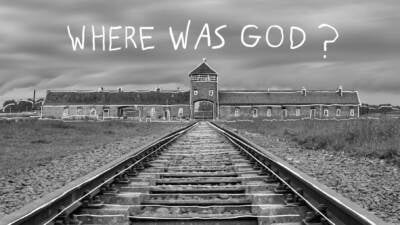Should the Holocaust be a key ingredient of our Jewish identity?
Jewish Identity and the Holocaust (Topic 7, part 1)
Share
In April 2020, to coincide with Yom HaShoah, the day in the Jewish calendar dedicated to Holocaust remembrance, and the 75th anniversary of the liberation, Rabbi Sacks launched a series of videos offering his perspective on some of the biggest questions asked about the Holocaust.
In 1995, for the 50th anniversary of the liberation of Auschwitz and the end of the Second World War, I was asked by the BBC to make a film from Auschwitz, and I was reluctant to do so, but I said, “I will only do so if I can tell the story the Jewish way.” And they said, “What’s the Jewish way?” And I said, “A Jewish story may begin with tears, but it always ends with hope.”
So in that half an hour programme, 25 minutes of it were from Auschwitz, but the last 5 minutes showed five-year-old Jewish children at a Jewish day school, and Jerusalem rebuilt. And the story was, really, “The Jewish people lives.” And that, I think, is the way you build in the Holocaust into Jewish identity. Not standing on its own, this black hole that swallows words and leaves you numb, but the story that begins in that pit and ends with this extraordinary phenomenon of Jewish life, stronger really than ever before, and that is how we tell the story.
It’s also the way we tell the story on Passover. At the Seder service, we begin with the bread of affliction and the bitter hubs of slavery, but we end having drunk four cups of wine and toasted to the celebration of freedom.

This series, created in partnership with the Holocaust Educational Trust, has been made possible thanks to the generous support of Richard Harris.
More Holocaust Curriculum Resources

Faith After the Holocaust
Rabbi Sacks responds to the devastation of the Holocaust

Where can you find hope in the history of the Holocaust?
Hope and the Holocaust (Topic 10)

How does the Holocaust impact interfaith relations today?
Interfaith Relations and the Holocaust (Topic 9)

How do you connect the Holocaust with the establishment of the State of Israel?
Israel and the Holocaust (Topic 8)

Do you think it’s ever possible to forgive the perpetrators of the Holocaust?
Forgiveness and the Holocaust (Topic 6)

What is the difference between vengeance and justice?
Jewish Theology and the Holocaust (Topic 5, part 3)

What about a statute of limitations?
Just Punishment and the Holocaust (Topic 5, part 2)

A Just Punishment for the Nazis?
Just Punishment and the Holocaust (Topic 5, part 1)

Do you think the Holocaust represented a failure of humanity?
Humanity and the Holocaust (Topic 2, part 1)

Does God care about individual lives, or merely the survival of the Jewish people as a nation?
God and the Holocaust (Topic 1, part 3)

Do you have faith in humanity after the Holocaust?
God and the Holocaust (Topic 1, part 2)

Where was God during the Holocaust?
God and the Holocaust (Topic 1, part 1)

What is theologically unique about the Holocaust?
Jewish Identity and the Holocaust (Topic 7, part 3)

Practically speaking, is there something unique about the Holocaust?
Jewish Identity and the Holocaust (Topic 7, part 2)

Should a Jewish theological response to the Holocaust include issues of justice?
Jewish Theology and the Holocaust (Topic 3, part 2)

How has the Holocaust impacted your personal relationship with God?
Personal Faith and the Holocaust (Topic 4)

What do you think the Jewish theological response to the Holocaust should be?
Jewish Theology and the Holocaust (Topic 3, part 1)

How can I have faith that God is within each of us if I mistrust humanity?
Humanity and the Holocaust (Topic 2, part 3)

Can we trust people other than ourselves?
Humanity and the Holocaust (Topic 2, part 2)
